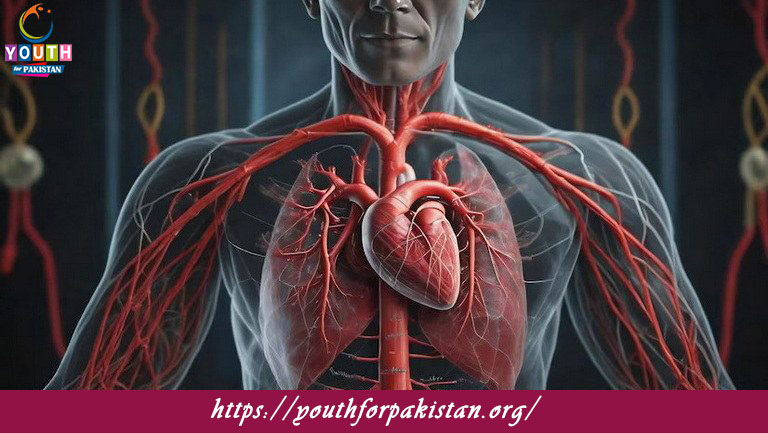Cardiac Muscles Quiz with Answers

Welcome to the Cardiac Muscles MCQs with Answers. In this post, we have shared Cardiac Muscles Online Test for different competitive exams. Find practice Cardiac Muscles Practice Questions with answers in Biology Tests exams here. Each question offers a chance to enhance your knowledge regarding Cardiac Muscles.
| Cardiac muscles, also known as myocardium, are specialized muscles found exclusively in the heart. These muscles are responsible for the continuous pumping of blood throughout the body, ensuring oxygen and nutrients reach all tissues. Unlike skeletal muscles, cardiac muscles are involuntary and contract rhythmically without conscious control. Maintaining healthy cardiac muscles is crucial for overall cardiovascular function and heart health. Regular aerobic exercise, such as jogging or swimming, supports cardiac muscle strength and efficiency. A balanced diet low in saturated fats and rich in nutrients like omega-3 fatty acids, antioxidants (such as vitamins C and E), and minerals (like potassium and magnesium) supports heart muscle health and reduces the risk of cardiovascular diseases. |
Cardiac Muscles Online Quiz
By presenting 3 options to choose from, Cardiac Muscles Quiz which cover a wide range of topics and levels of difficulty, making them adaptable to various learning objectives and preferences. You will have to read all the given answers of Cardiac Muscles Questions and Answers and click over the correct answer.
- Test Name: Cardiac Muscles MCQ Quiz Practice
- Type: Quiz Test
- Total Questions: 40
- Total Marks: 40
- Time: 40 minutes
Note: Answer of the questions will change randomly each time you start the test. Practice each quiz test at least 3 times if you want to secure High Marks. Once you are finished, click the View Results button. If any answer looks wrong to you in Quiz, simply click on question and comment below that question, so that we can update the answer in the quiz section.
Download Certificate of Cardiac Muscles Test
On the end of Quiz, you can download the certificate of the quiz if you got more than 70% marks. Add a certificate to your job application or social profile (like LinkedIn) and get more job offers.
Cardiac Muscles Flashcards

Cardiac muscle cells are ____________, allowing them to transmit electrical impulses efficiently.
Branched

Which part of the heart generates electrical impulses to regulate cardiac muscle contraction?
SA node (Sinoatrial node)

Which hormone increases heart rate and the force of cardiac muscle contraction?
Epinephrine (Adrenaline)

Cardiac muscle cells have a unique feature called ____________ that allows them to contract in a coordinated manner.
Automaticity

The contraction of cardiac muscle is regulated by which nervous system division?
Autonomic nervous system

Cardiac muscle contractions are coordinated by the ____________, ensuring efficient pumping of blood.
Conduction system

What is the function of the intercalated discs in cardiac muscle cells?
Allow rapid conduction of electrical impulses

Cardiac muscle cells have a high density of which organelle to support energy production?
Mitochondria

Which structure allows cardiac muscle cells to communicate and synchronize their contractions?
Intercalated discs

Cardiac muscle cells are dependent on which ion for the initiation and propagation of action potentials?
Calcium

Which enzyme is crucial for breaking down ATP to provide energy for cardiac muscle contraction?
ATPase

Cardiac muscle contraction is regulated by the release of which ion from the sarcoplasmic reticulum?
Calcium

What is the primary function of the sarcoplasmic reticulum in cardiac muscle cells?
Store and release calcium ions

What is the term for the rapid depolarization and repolarization of cardiac muscle cells?
Action potential

Which ion is primarily responsible for the plateau phase of the action potential in cardiac muscle cells?
Calcium

Cardiac muscle contraction is initiated by the release of ____________ from the sarcoplasmic reticulum.
Calcium ions

What is the term for the ability of cardiac muscle cells to generate electrical impulses spontaneously?
Automaticity

Cardiac muscle cells have a rich network of ____________ to support rapid conduction of electrical signals.
T-tubules

Which hormone increases heart rate but has little effect on cardiac muscle contraction strength?
Thyroid hormone
If you are interested to enhance your knowledge regarding Physics, Chemistry, and Computer please click on the link of each category, you will be redirected to dedicated website for each category.




